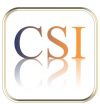Course Fee: $459 (Canadian currency)
A fully comprehensive Coaching Practitioner Certification program.
This course provides the coach with foundational knowledge on what it is like to struggle with addictions, and the steps that can help a client to break free. It describes how addictions develop and take root; who is most vulnerable; how it affects them; the impact that it has on the addict’s family; treatment options and sustained recovery. Specifically, we consider alcohol addiction, drug addiction, compulsive gambling, eating disorders, shopping addiction, sex addiction, and internet addiction.The course also provides diagnostic tools that the coach can use to help identify if clients have developed a strong dependency.
You are free to commence at a time that suits your schedule and given six months to complete the course. Full tutor support is provided by a coaching mentor. Upon satisfactory completion of the course a certificate will be mailed out to you.
SYLLABUS
Module 1: Introduction to Addictions
Topics Studied
- Defining and categorising addictions
- Who is at risk?
- The stages of an addiction
- How addictions can affect an individual’s life
- The impact on the children
- The Preoccupation and Impact Scale
- Treatment options
- Brushing up on communication skills: Effective listening
- Some online recovery resources
Learning Outcomes and Summary of Objectives
Upon successful completion of this learning module, the student should be able to:
- Determine who might develop an addiction.
- Explain how a habit becomes an addiction.
- Suggest ways an addiction affects the family.
Module 2: An Alcohol or Drug Addiction
Topics Studied
- Alcohol and alcoholism
- Contributing factors to an alcohol addiction
- The addict, the family, and co-dependency
- Symptoms of an alcohol dependency
- Diagnosing an addiction
- Contributing factors to a drug addiction
- Symptoms of a drug dependency
- Warning signs of a drug addiction
- How addictions can affect your life
- Prescription drug addiction and abuse
Learning Outcomes and Summary of Objectives
Upon successful completion of this learning module, the student should be able to:
- State how alcohol works on the body.
- Discuss the possible causes of an alcohol or drug addiction.
- Appraise the consequences of a drug addiction.
Module 3: A Gambling Addiction
Topics Studied
What are the different forms of gambling?
- Self-awareness questionnaire
- What is compulsive gambling?
- Types of problem gambler
- The phases of problem gambling
- Contributing factors to a gambling addiction
- Assessment tools
- The road to change and recovery
Learning Outcomes and Summary of Objectives
Upon successful completion of this learning module, the student should be able to:
- Review the different forms of gambling.
- Connect the different phases of problem gambling.
- Propose possible causes of a gambling addiction.
Module 4: Eating Addictions and Compulsive Spending
Topics Studied
- What is a food addiction?
- Anorexia nervosa, bulimia nervosa and binge-eating disorder
- Indentifying the warning signs of
- Contributing factors
- Health consequences
- Treatment and recovery
- Retail therapy or a true addiction?
- Warning signs of a compulsive shopper
- Developing preventative strategies
- Breaking free from a shopping addiction
Learning Outcomes and Summary of Objectives
Upon successful completion of this learning module, the student should be able to:
- Discuss the warning signs of anorexia and bulimia nervosa.
- Describe the health consequences of anorexia and bulimia nervosa.
- Appraise what is meant by binge eating disorder.
Module 5: A Sexual Addiction
Topics Studied
- The causes of a sexual addiction
- The role of genes and biochemistry
- Identifying the warning signs
- The addiction cycle
- The consequences of a sexual addiction
- Treatment and recovery
- Cybersex
Learning Outcomes and Summary of Objectives
Upon successful completion of this learning module, the student should be able to:
- Recognise the cyclical nature of a sexual addiction.
- Present the consequences of a sexual addiction.
- Critique the key components of cybersex.
Module 6: Internet and Gaming Addictions
Topics Studied
- Symptoms of an internet addiction
- What needs are being met on the internet?
- Types of internet addiction
- Thoughts on how male and female addicts differ
- Factors which increase the risk of addiction
- Treatment and recovery
- 12 Step Programs
Learning Outcomes and Summary of Objectives
Upon successful completion of this learning module, the student should be able to:
- Discuss the different types of internet addiction.
- Suggest some differences between male and female addicts.
- Summarise the 12 steps in 12 Step Programs.
Required reading for the course
McCready, B.S., & Epstein, E.E. (2013). Addictions: A comprehensive guidebook. (2nd Ed.). Oxford: Oxford University Press.
Duration of the course
The course consists of six knowledge and practice-based learning modules (comprehensive course notes), supplemented with suggested background reading, reflection activities and submission of tutor-marked assignments. There is one marked assignment per module. Courses are offered on a part-time basis and are designed to be completed within six months. Many students prefer to complete their studies in a shorter time frame.
